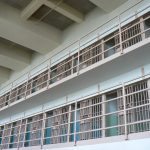COVID-19 Prison Lockdowns Lead to Riots

Tensions are running high in prison systems across not just Australia but other parts of the world during COVID-19.
Without access visits from family and friends, and even lawyers, inmates are becoming frustrated and angry which is leading to a rise in the number of outbursts behind bars.
Inmates are also frightened about the prospects of an outbreak of the virus behind bars. Many suffer chronic health problems, and fear that the virus could represent a death sentence for them.
While the situation is causing unrest amongst the prison population, banning visitors has been seen as important to protect both inmates and staff.
Most prison facilities in Australia already run at more than capacity – inmates are cramped in overcrowded cells – the risk of coronavirus spreading like wildfire is exceptionally high.
Since March, visitors have been banned in all jurisdictions across Australia.
Unrest within the system
Last month, there were riots at both Wellington and Goulburn Correctional Centres – but these were minor compared to what’s happening around the globe.
In recent days more than 60 people were injured and 47 were killed in a prison riot in Venezuela over a visiting ban, in Italy 12 inmates died in deadly riots. At least 23 inmates were killed in a prison riot in Colombia.
When COVID-19 started spreading across the nation, New South Wales followed the US, UK and Ireland who were releasing inmates in significant numbers to ease the pressure on the system, to protect inmates, prison staff and the community.
The strategy of freeing up prison space through early release meant that prisons could implement social distancing within prison walls, allow any infected inmates to be isolated, and their health needs to be met, in order to prevent or control an outbreak.
NSW Early release legislation
With more than 12,000 inmates in correctional centres across the state, New South Wales was the first state in Australia to introduce emergency legislation enabling certain inmates to be released.
The legislation grants the corrections commissioner discretionary powers to release to inmates on a case-by-case basis, after consideration of a number of factors including: health, age, vulnerability, health, their offence, and time to serve.
Those who pose a low risk to the community (this explicitly excludes serious offenders, with specific reference to murderers, terrorists and serious sex offenders) would not be considered for early release.
Rather, the rules relate to those who are on remand for less serious offences, as well as those convicted of non-violent offences, such as traffic, public order, drug offences, breach of justice order and property offenders. The legislation further provides that those who are afforded early parole could be subjected to onerous conditions, such as home detention and electronic monitoring.
A strict condition of the rules is that eligible persons must not pose a risk to the community or to the safety of victims – especially in relation to domestic violence offenders – and that they have accommodation.
No inmates have been released
To date, no inmates have been released on parole under this arrangement.
There have been no confirmed cases of COVID-19 within the inmate population in NSW.
Since 31 March 344 inmates have been tested and cleared of COVID-19. More than two dozen inmates were placed into isolation for testing and monitoring.
At this point, aside from banning visits, the Corrective Services NSW COVID-19 prevention management plan includes:
Screening staff and any essential contractors prior to entry, including a body temperature check. Anyone with a temperature of 38 degrees or above is not permitted to enter. Similarly, anyone exhibiting cold or flu-like symptoms must not return until they have fully recovered.
- Restrictions on non-essential inmate movements between centres to help stop the spread.
- The suspension of community works projects and work release.
- Introduction of a 14 day quarantine period for all new inmates.
- Establishing isolation hubs at existing centres across the state to help contain the virus in the event inmates test positive.
- Piloting video visits for family and friends.







